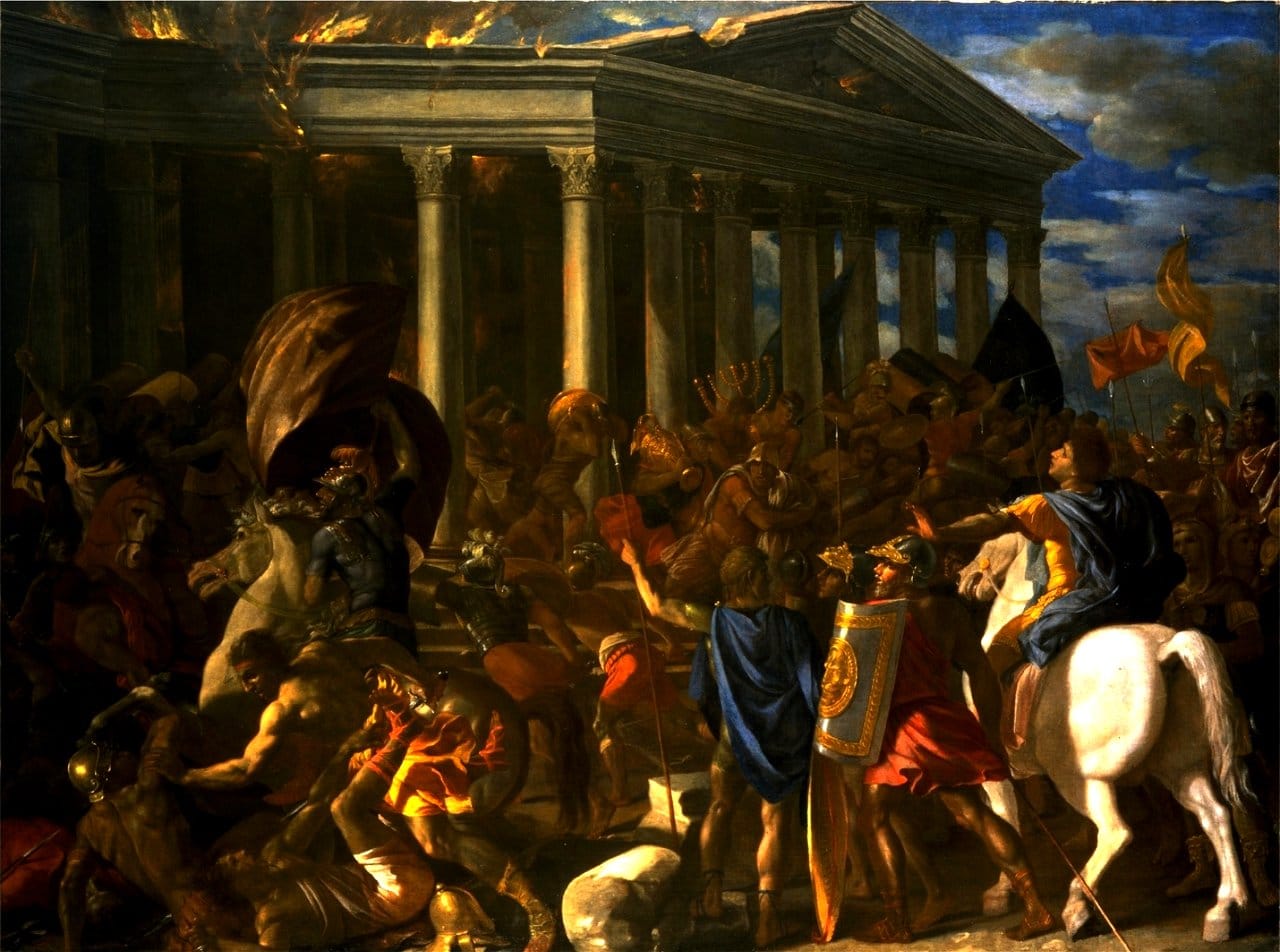By Dinah Bucholz
The soon-to-be Roman emperor Vespasian was taking his time. It was the first century CE, and he had instructed his legions to surround Jerusalem. When his soldiers grew impatient from inaction, Vespasian explained the long wait to breach the city walls: Jewish infighting had gotten so intense that the army could just wait for their enemies to finish each other off before invading and conducting a mop-up operation (I paraphrase).
Thus, the Talmud teaches — and the historian Josephus confirms — that baseless hatred caused the downfall of Jerusalem. During the Hebrew summer month of Av, when these events took place, traditional Jews atone by reflecting on the fundamental principles of Judaism: Love your fellow, and Hillel the Elder’s golden rule, “What is hateful to you don’t do to others.”
It’s no accident that the time of reflection on these teachings is followed by Elul, the month of repentance, and the month we’re currently in right now.It means putting all that into practice to prepare for Rosh Hashana, the Day of Judgement. Since Rosh Hashanah is upon us this week, I wanted to pose myself these questions: In an era of bitter partisan hatred and hyperpolarization, how do we achieve that? Indeed, why should we even bother trying?
We should try because the greatest threat to the United States isn’t the right and it isn’t the left; it’s our disunity.
After 9/11, Americans rallied around President George W. Bush, whose approval soared into the nineties. Such a thing is inconceivable today. Even in the face of a deadly pandemic, we couldn’t unite to fight it, possibly contributing to the worst outcome among developed nations. Instead of rallying, we turned Covid into a culture war. We fought over lockdowns. We fought over masks. We fought over vaccines. We fought over school closures. We even fought over Dr. Anthony Fauci.
Russia and China have taken note and are improving Vespasian’s playbook with a modern twist: exploiting our divisions via bots and influencers on social media. They are biding their time while quietly ramping things up.
The lesson of Av, the defeat of first-century Jews thanks to disunity, and the lesson of Elul, the time of repentance, are universal lessons we would do well to take to heart. That’s why we should bother trying. And that brings me back to the question of how.
